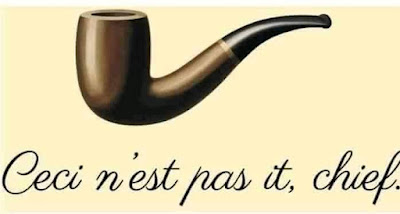Every Outside Purpose is the Work's Ruin
A quick note today. This week has been a little nightmarish at work; possibly because it's been the only complete week of classes in the semester so far. Next week we have President's Day off, however, so we'll be back to the three-day work week, thank goodness.
Ha! If only having a three-day work week was good! For a while I was like, "I don't know what my colleagues are complaining about. I do NOT mind snow days. BRING ON THE SNOW." And yet, it really is putting a huge crimp in my productivity. I accomplish far more at the office than I accomplish at home, and I've been home A LOT since the semester began. On the one hand, I AM really grateful for the time and attention I've been able to give my family and my mess of a home. On the other hand, I keep getting all of these emails asking for things I haven't even BEGUN to consider.
It's an ALL CAPS DRAMATIC SPEAKING DAY, isn't it?
It's also a "Mommy and Me" day because Saintly Babysitter actually took time for herself and HER family and couldn't watch Vampire Toddler today. So we're hanging out at home. My goal is to finish writing a recommendation that's due today and then, perhaps, tidy the house a little. Oh, and take a turn on the treadmill during V.T.'s nap time. BECAUSE RUNNING MAKES MOMMY LESS CRAZY.
As regards writing, I've actually begun working (slowly, slowly) on a poem this week -- a line or two at a time. And I've been digging into more Tsvetayeva, whose "The Poet and the Critic" is really, really good. I love her assertiveness in general, her deep and unabiding sense of self, but in this essay she's particularly fearless. She's so honest and unapologetic and vehemently supportive of the poets she loves (and so righteously dismissive of the critics she despises).
In early paragraphs of the essay she speaks of the critic as "an investigator and a lover," claiming that "no one has the right to judge a poet who has not read every line that poet has written." "Creation takes place gradually and successively," she writes. "What I was in 1915 explains what I am in 1925. Chronology is the key to understanding."
I think the best reviews being written today agree, more or less, with this -- a good critic is one who understands the poet in the context of contemporary poetry and in the context of The Canon and outside The Canon and also in the context of the poet's own development -- what he or she has written already and what he and she is preparing to write next.
Tsvetayeva also writes convincingly and thoughtfully of political poetry (poetry viewed as political, but not necessarily created from a political place), and of money:
Money is the possibility of writing more. Money is tomorrow's poems. Money is . . . my freedom and my writing-desk . . . Money is my possibility of writing not merely more, but better, of not taking advances, not hurrying events, not plugging gaps in the poetry with random words . . . Money is my possibility of writing less. Not three pages a day, but thirty lines.
Of course, in her day people actually paid for poetry. Nonetheless, what she says still rings true: Money purchases time and the room to breathe. This is, and was, and will still be, particularly true for women (and men) who both write and must bread-win (as Tsvetayeva needed to with an invalid husband) and for whom the writing doesn't always win the bread, in a manner of speaking (and for whom the writing isn't intended to win the bread, too).
And speaking of bread-winning, I must return to it now. Those recommendations aren't going to write themselves. I'll leave off on THIS thought from Tsvetayeva:
Whether it's fame, or money, or the triumph of some idea or other, every outside purpose is the work's ruin. The work, while it is being written, is its own purpose.


Comments